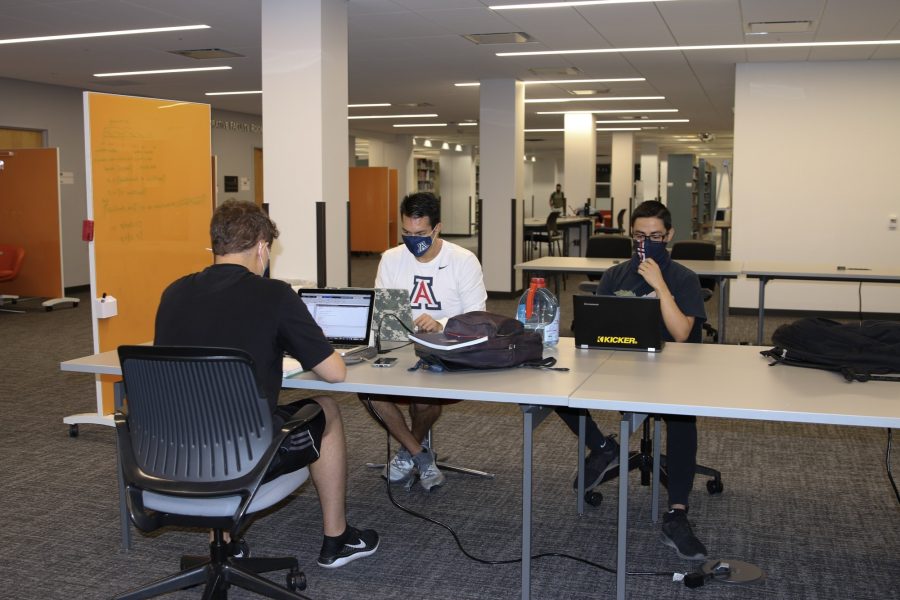University of Arizona students in need of running essential programs for classes can now access them on a server without downloading anything to their personal laptops or physically going into a computer lab.
Virtual Computing Access Technology is a virtual computing system that allows students and faculty with an internet connection to access a variety of different programs. The website offers all the same programs found on the computers in labs as well as major-specific software.
To use the software, students simply go to the VCAT website, log in with their NetID and password and launch an application such as Microsoft Word or Adobe Premiere Pro. After launching the app, a new window will open displaying the document screen just as it would if it were downloaded on a computer.
RELATED: Tech trouble: Students navigate an online campus with Zoom, UA WiFi
Walter Ries is the principal IT manager at the University of Arizona and runs the Office of Student Computing Resources, in which the VCAT program falls under. He helped choose the virtual cloud corporation Apporto as the vendor and branded it as VCAT for the university.
“VCAT allows students to log in remotely from any device whether it be a MacBook, Chromebook or a regular PC and access software off of a server,” Ries said. “So instead of running it off their own PC they’re actually running it off a server, and all of the information screens are displayed on their machines.”
VCAT allows students to access software at any time and place, which has been a big help for those who aren’t able to use the campus computer labs because of the pandemic.
According to the UA libraries website, computers are only available for use at the Albert B. Weaver Science-Engineering Library. The library is open Sunday through Thursday from 9 a.m. to 9 p.m. and Friday and Saturday from 9 a.m. to 5 p.m.
Jesse McCrea is the senior IT support analyst for the university and has worked on creating VCAT from the beginning for its launch in the fall of 2019.
“It’s been very helpful because of the pandemic,” McCrea said. “Students couldn’t necessarily go onto campus to get into the computer labs, so we had to make sure that everyone had what they needed to continue working.”
The ability to access important school programs at home is essential, and VCAT offers those that cater to many different majors.
“The 24/7 [help desk] has told us that they have seen a huge decline in the number of students needing help loading software on their laptops,” Ries said. “They have a huge surge at the beginning of the semester, and now with VCAT we’ve been able to take some of that surge away so they can focus on a lot of the more day-to-day things.”
IT workers for VCAT can now allow students and instructors access to specific programs that only their class will utilize.
“We also have specialty software for individual classes,” Ries said. “There’s a program called NEURON that does brain mapping, and Geneious is one for gene mapping.”
As for the future of VCAT, Ries and McCrae’s team continue to work on adding additional software to accommodate more majors.
“The other next step is integrating VCAT into [Desire 2 Learn],” Ries said. “We’ve already taken care of the main bulk of software that’s available in our computer labs, but now we’re adding in specialty software for individual classes.”
The VCAT team is working with university faculty to further integrate the program into classes so that students can use the same updated versions of software that they use during instruction.
To access VCAT and its programs, students can go to arizona.apporto.com. To learn more about VCAT or request additional software, students can visit the IT department’s website.
Follow Sydney Jones on Twitter









